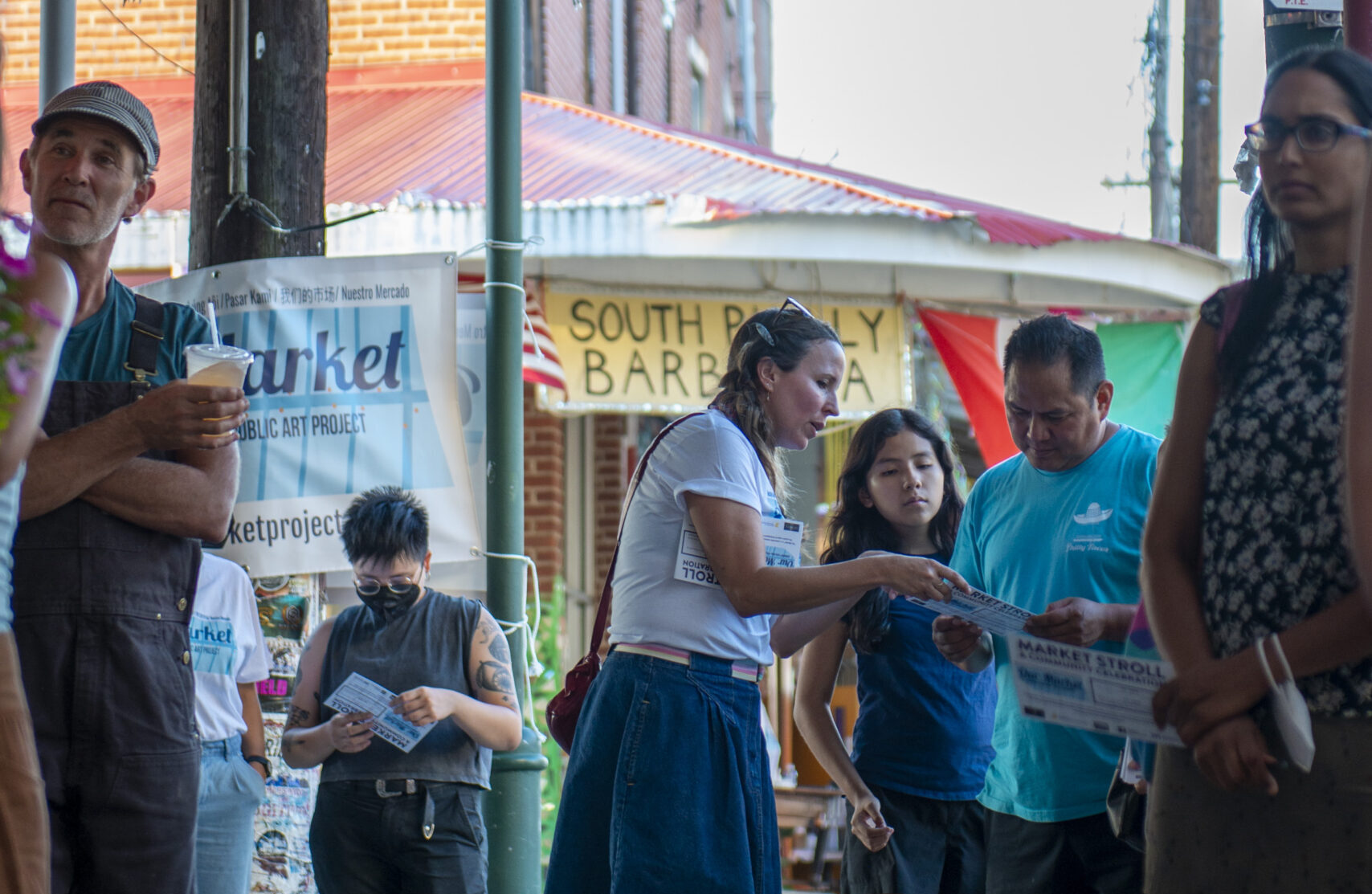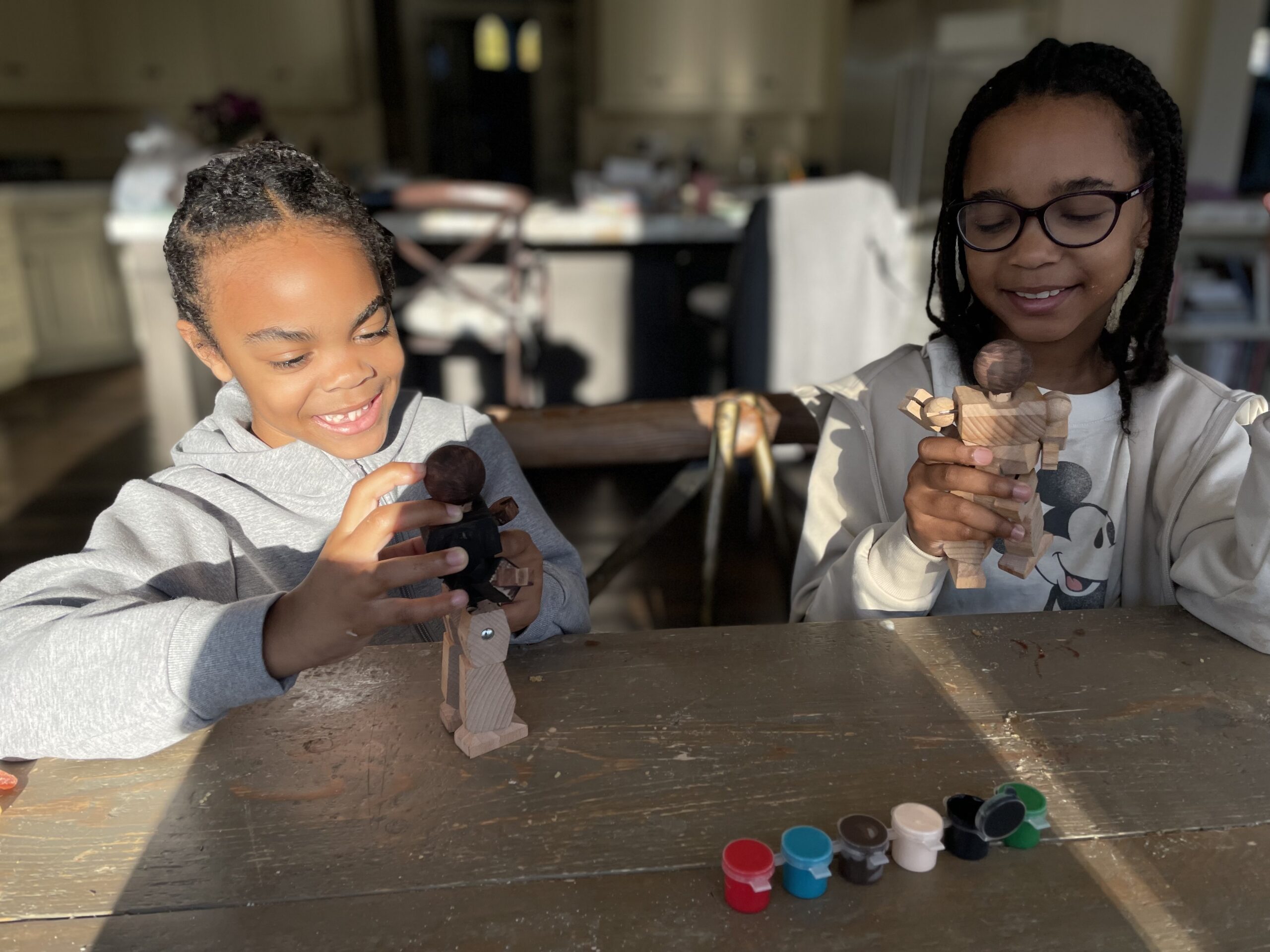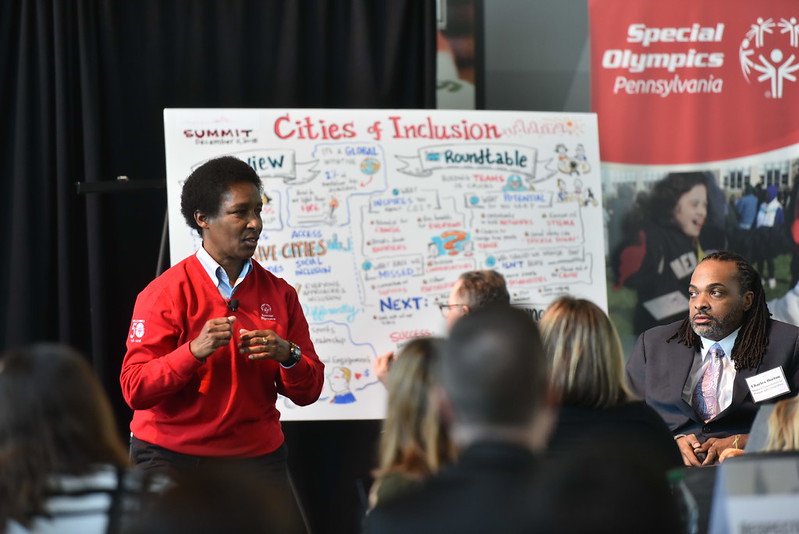The goal of this competition was to select our official Legacies for the 250th, projects that will leave behind a legacy of impact for years to come. The three projects we selected serve people whose voices are frequently not front and center in public spaces and in public conversation: immigrants, children of color and people with disabilities:

Our Market is a wide-ranging project by a well-known Latina artist and activist, Michelle Angela Ortiz. The goal is to engage and empower the residents of the area around the 9th Street Market in South Philadelphia, one of the oldest and largest open-air markets in the U.S. and home to generations of different immigrants since the late 1800s. As part of this multifaceted initiative, Ms. Ortiz is developing a program to help local residents become the storytellers, tour guides and guardians of their history. This grassroots model of community-centric storytelling will be shared with other communities with a similar, urgent need to preserve local heritage and take back ownership of their histories from outside operators, with potential partners in Chinatown, Germantown and North Philadelphia.

Smith Memorial Playground’s Revolutionary Action Figures uses the power of play to teach children about Black, Indigenous, and People of Color (BIPOC) activists, contemporary and historic, working to change Philadelphia for the better. This initiative will empower children of color to see themselves as changemakers, with the ability to take control and solve problems as everyday heroes. Kids will create their own action figures based on real-life Philadelphians who’ve made a difference in their community and be inspired by their example. This program will take place at Smith Playground as well as other education and recreation sites in Philadelphia.

Special Olympics Pennsylvania will transform Philadelphia – which has the highest rate of disabled residents among the top 10 big cities – into the first City of Inclusion in the U.S. The goal is to ensure that neighborhoods and businesses accommodate people of all abilities and increase access in the areas of education, transportation, employment, health, housing and information and services. The first phase of the program will build a network of businesses and services that pledge to make inclusion a priority and adopt best practices; while the second phase will bring this network to the disability community so they can access opportunities and benefit from integrated services.